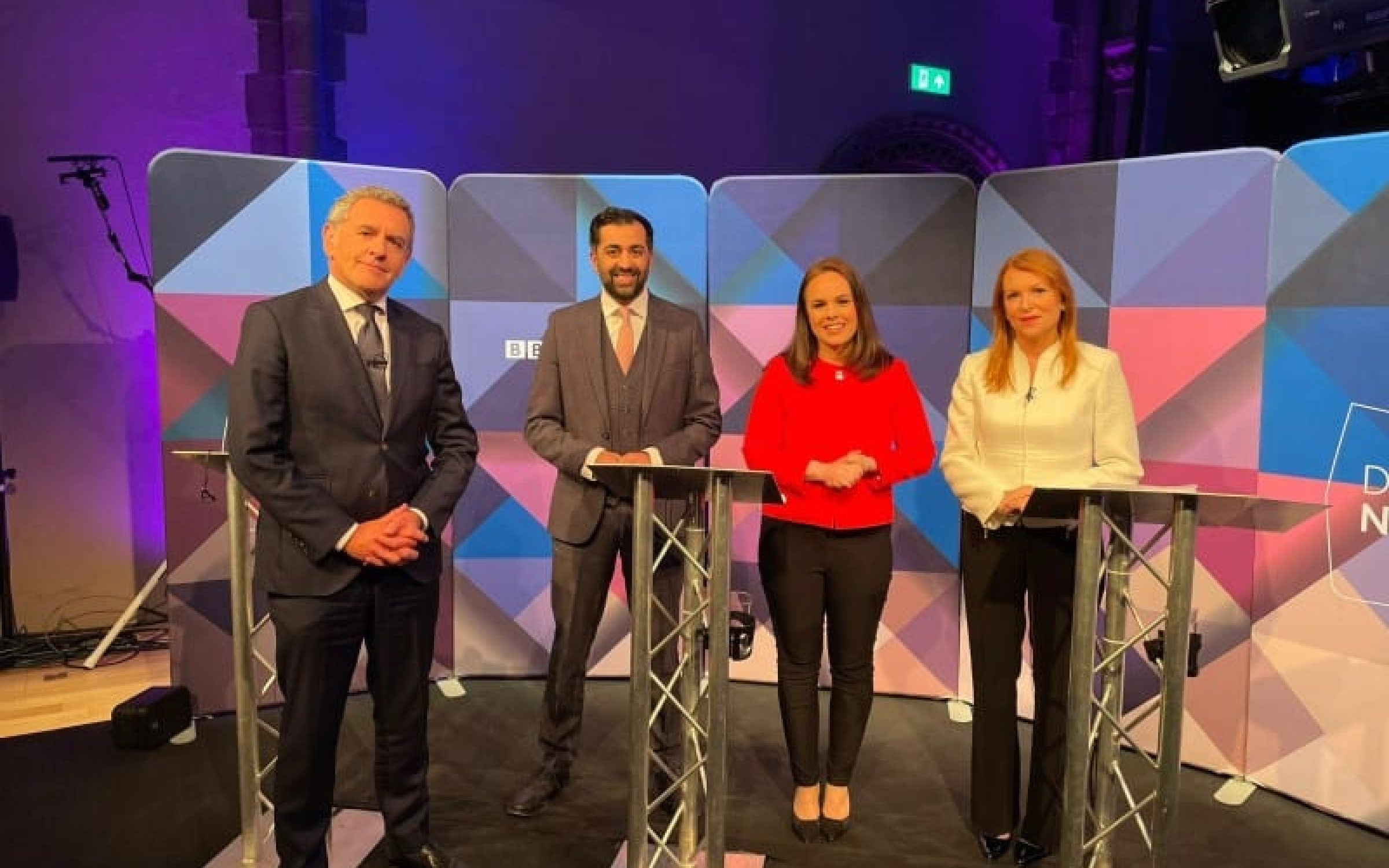The fractious TV debates of the SNP leadership contest are officially over, giving an estimated 80,000 party members less than a fortnight to make a final decision on who should replace Nicola Sturgeon as First Minister of Scotland.
After a contest that has exposed deep divisions within the party, last night’s fourth and final televised debate on the BBC struck a slightly different tone. Kate Forbes, Ash Regan and Humza Yousaf appeared keener to talk up their own policies than to land punches on each other.
Finance Secretary Forbes certainly came down softer on Scotland’s Health Secretary and so-called continuity candidate, Yousaf – who, just a week ago, she declared was unfit to govern.
When asked by Yousaf last night if she would back him if he is chosen as First Minister, Forbes pledged to back whoever wins “to the hilt”, adding: “if it’s either of you it will be my privilege to support you in those roles”.
Perhaps Forbes was fearful that launching another unbridled attack on Yousaf’s – and, by virtue, her own party’s – record in government could backfire if she wins. Or perhaps she is hoping for a good position in Yousaf’s team if he does prevail.
Four polls conducted over the last week or so have found that Forbes is most popular with the Scottish public as a whole, being the preferred candidate for roughly 30% of Scots, compared to 20% for Yousaf, 10% for Ash Regan, with a further 40% still undecided. However, Yousaf is the preferred candidate of the SNP establishment and appears to be narrowly in the lead with party members, who will ultimately decide on the candidates’ fate.
While the trio may have minimised the infighting for fear of further damaging their party’s reputation, they made no attempt to disguise the flaws in the Sturgeon’s doomed bottle return scheme.
All three agreed that this inept piece of policy – which could see small brewers and manufacturers go bust – cannot go ahead in its present form. Forbesinsisted that, had she not been away for seven months, she would have stopped the scheme. Both she and Regan agreed it should be paused to avoid further burdening small businesses, already set back by pandemic losses and sky-high energy prices. Yousaf, meanwhile, was in favour of bringing the DRS recycling scheme live in the autumn, but said he would exclude small businesses for the time being.
Crucially, another key point of agreement that emerged between the candidates last night is that they all share the same level of optimism – or, some would argue, delusion – about the timeline for an independent Scotland.
When asked by the BBC’s Stuart Bonner, “If you win, will Scotland become independent within five years?”, the answer was a resounding yes. In fact, Forbes believes it will come sooner than this.
How so? Yousaf and Forbes agreed that making the case for independence starts with “governing well”. A sensible approach to strengthening the Yes vote, no doubt. Yet both were scant on the details of how exactly they plan to find any legal method to host another referendum.
Write to us with your comments to be considered for publication at letters@reaction.life




